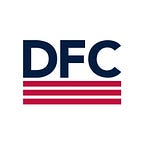By Charity Wallace, Managing Director, Global Women’s Issues, US International Development Finance Corporation
Arguably the biggest missed market opportunity is that of women. Women account for 50 percent of the global working age population. Research shows that if women participate more equally in the economy, global GDP could increase by 26 percent or $12 trillion USD by 2025, and in Latin America alone, women could add an estimated $2.6 trillion to GDP by 2025 if the gender gap is bridged.
Yet despite recognition of the opportunity that women represent, on virtually every global measure, women are more economically excluded than men. Women are less likely than men to have access to technology, education, home loans, financial services, or even a paying job, and these disparities are most pronounced in the developing world. Worldwide, roughly 700 million fewer women than men have paid employment. And women are three times more likely than men to undertake unpaid work.
Against these daunting hurdles, women show great perseverance and promise. Women entrepreneurs are more creditworthy borrowers than their male counterparts and, in many markets, women-founded startups generate higher sales and earnings. When women do have an opportunity to earn income and build businesses, they are more likely than men to invest their earnings back into their immediate families and their communities. By economically empowering women, economies can experience equitable and sustainable economic prosperity, greater stability and increased national security.
Women’s economic empowerment is a priority for the U.S. International Development Finance Corporation (DFC) not only because of the great need women represent, but because women’s economic success is critical to the success of their communities. By investing in projects that are women-owned, women-led, women-supporting or which offer a product or service such as clean water that brings a strong benefit to women, we can help build stronger families and stronger economies. To date DFC work to support that Women’s Global Development and Prosperity (W-GDP ) 2X Women’s Initiative, which advances the Administration’s broader W-GDP Initiative, has mobilized more than $3 billion worldwide and nearly $1 billion in Latin America alone to projects that advance women’s economic empowerment.
As we recognize the progress of this initiative, we are also working to ensure we can sustain and build on this progress amid the unprecedented challenges the world now faces. Covid-19 has disproportionately impacted women, especially when they seek to access capital. Women face a roughly $300 billion shortfall in access to credit, pre-COVID, which prevents them from reaching their full potential. Women make up 70% of healthcare providers and 90% of nurses are women. Depending on the region, women are at least three times more likely to be responsible for unpaid work and home care.
As America’s development bank, DFC partners with private investors to address some of the greatest challenges the world faces, including gender inequality. In Latin America, where many of the gender disparities are particularly wide, our partners have moved swiftly to help women protect the health of their families while navigating the loss of income and mobility.
In El Salvador, where a third of the population lacks a reliable water supply at home because of aging and poorly maintained infrastructure, one of our partners has accelerated work to rehabilitate old pipelines, and water pumps to resume water delivery to more homes. The project was particularly beneficial to women, who typically bear the responsibility of collecting water for the family, often traveling great distances to do so.
Another partner, the nonprofit social investor Root Capital, provides financing and training to rural farmers, with an emphasis on female farmers, across much of Latin America and Africa and is now working to assess the health risks, labor shortages and potential production disruptions these farmers may face as a result of the pandemic. By shifting more training online and working to educate farmers about safe farming practices, Root is working to ensure that hundreds of thousands of farmers in Latin America, many who are women, can preserve their livelihoods and their health through this difficult time.
Because access to credit poses such a significant hurdle to earning income, many of WGDP 2X’s investments are focused on increasing lending to women entrepreneurs and women-owned small businesses who are often unable to obtain traditional loans. Fewer than half of all women in Latin America have access to a bank account and by providing financing to local banks are encouraging them to increase lending to underserved populations such as women. DFC partners with banks in multiple countries including throughout the Americas in projects aimed at increasing lending to women.
Investing in women is not only the right thing to do, it is the smart economic investment. Investing in women yields one of the highest returns. When we invest in women, we improve our world. That is why DFC is committed to and proud of our work to economically empower women.
